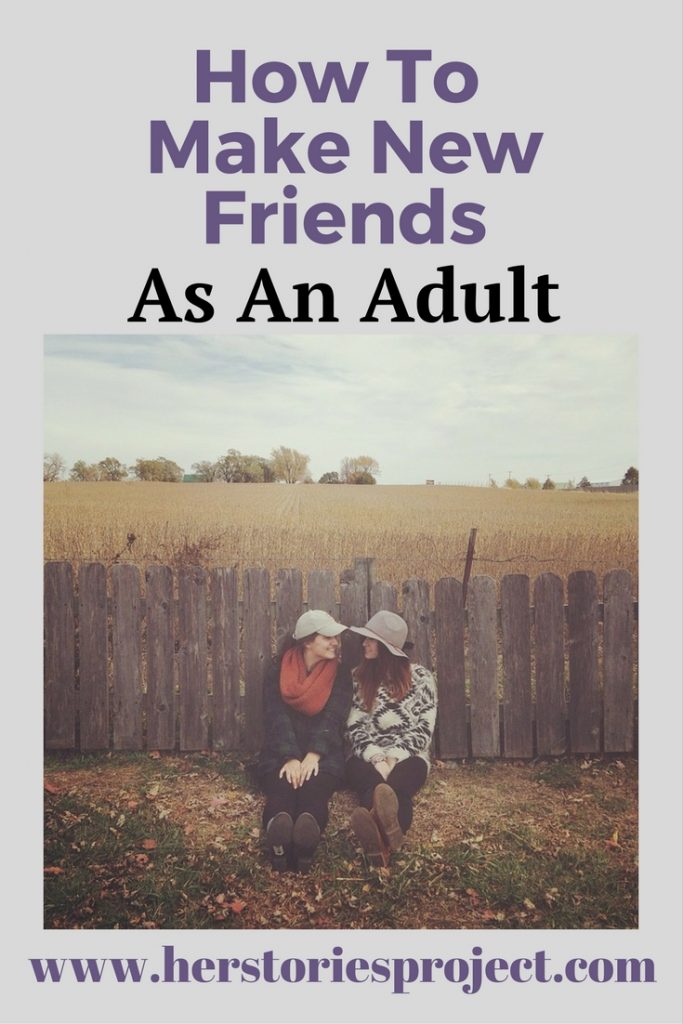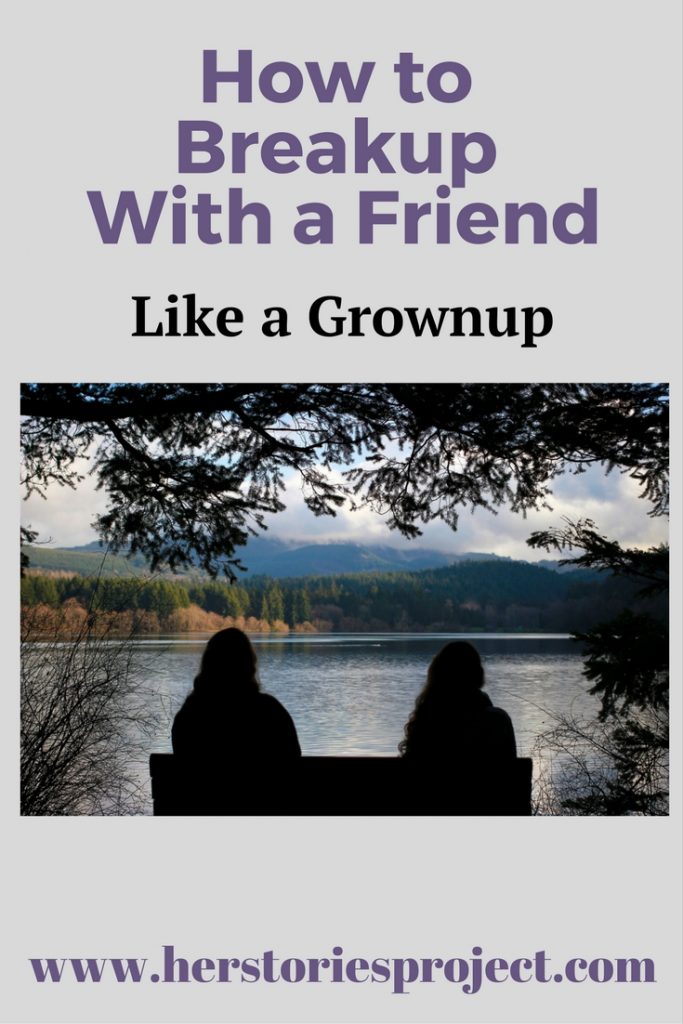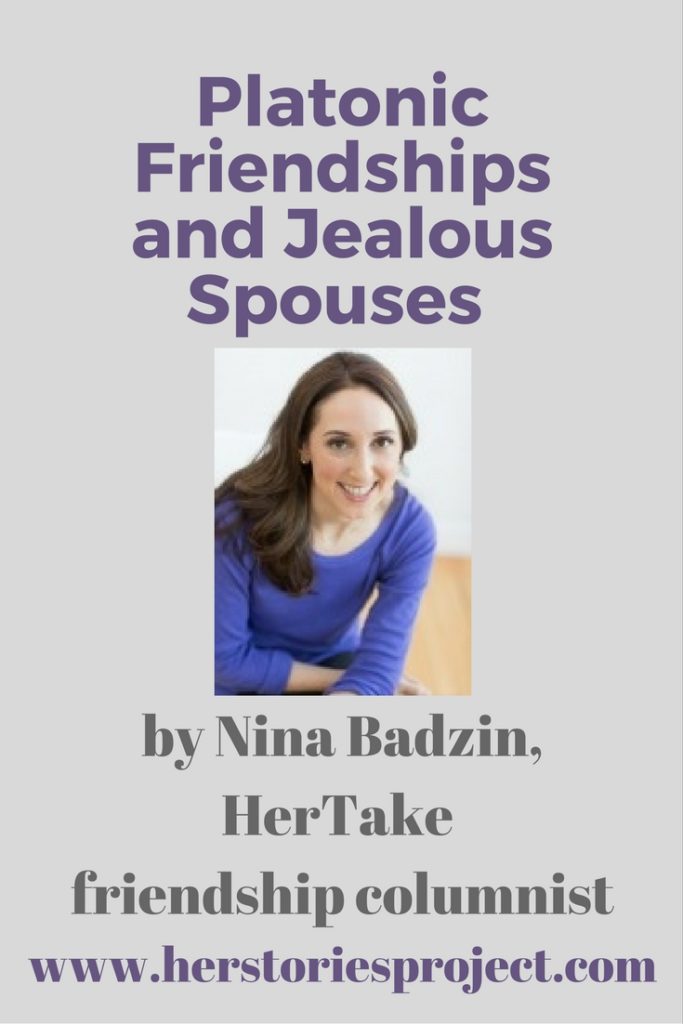How To Make New Friends as An Adult: 13 Ways To Connect
Here’s how to make new friends as an adult: get creative.
There’s no denying that building new friendships is more difficult as we age. It was all so easy as a younger person. It was as if potential friends were everywhere. The dorm, your classes, your apartment building, parties.
Then we grow up. Friends move away, or get married, or have kids, or are consumed with their jobs. Or all of the above. Suddenly you realize that you have far fewer friends than you ever have before, and you aren’t sure how to begin to make more.
Friendship is harder when we get older for many reasons.
First, in general, we have far less free time. We’re pulled in many directions: raising kids, doing our jobs, caring for aging parents, taking care of our homes.
Our living arrangements are not as conducive to making new friends as an adult either; where we once lived in a dorm or an apartment, we now live in more isolated houses.
We also (most of us anyway) have a greater understanding of our own weaknesses and flaws. We might be more wary of opening up all of our baggage and personality quirks to strangers than we were as kids.
Most of all, however, what our friendships are missing is consistency. When we were younger, we often saw the same people, at nearly the same time, in the same places. We saw our roommate every day when we got home from school or work, or we went to class with the same people each week.
But making friends as an adult is not impossible. When I asked my own Facebook community about how to make new friends as an adult and how they’d done it in the past, I got terrific answers.
Try an activity that requires a consistent schedule.
Friendship guru Shasta Nelson, author of the new book Frientimacy and the foreword author to our first book, wrote: “If we join something—like a church, a co-working space, a book club—where the regularity is already scheduled then we can show up and build familiarity before taking the friendship outside of that setting.”
Take a class
One activity that requires regular commitment is a class — an adult education class, a writing class, computer class, dancing, grad school. As an adult, I’ve made several close friends in classes that I’ve taken over the years.
Be bold.
One of my friends from high school said that she approached a woman at a kids’ birthday party and said, “I’m in the market for a best friend, since mine moved. What do you think?” As she has gotten older, my friend said, “I can’t afford to be coy anymore.”
Travel.
A friend of mine from graduate school met a couple on a cruise ship that he and his partner still connects with.
Start a club.
If you can’t find an activity that interests you, start your own club.
One writing friend of mine said, “I started a cooking club with a bunch of people I barely knew (one from work, one from a kid’s sports team, one was our doula), and it worked really well. These families are probably our closest friends in this area.”
Do community service.
Another Facebook friend told me, “I organized cultural exchanges and made numerous international friends.”
Exercise
Several of my friends mentioned that they found friends by joining a gym or going to an exercise class. One friend mentioned See Mommy Run, a site that connects moms through walking and running groups.
Even walking around your neighborhood (especially with your dog or baby!) can lead to friendships.
One Facebook friend told me, “When my son was about 6 weeks old, I started walking with him in a carrier around the neighborhood. I kept seeing the same woman about the same time every day, walking with her son and dog. It wasn’t long before we started saying hi and finally, we stopped to talk and then exchange numbers. As it turned out, our sons were a week apart, we had both had c sections, and we were both in the middle of postpartum anxiety issues. She is now one of my best friends.”
School Pick Up Lines
Several friends mentioned school pick-ups as opportunities to make new friends. When I first started waiting in the pickup line for my son last year after his day of preschool, I was intimidated. Everyone seemed to know everyone else, except me! How did they all seem to know each other so well? Why were they excluding me? It took me a long time to realize that they had met and gotten to know each other exactly this way, by being friendly.
Shopping
More generally, waiting in any sort of line can have potential for meeting new people. Just yesterday a woman struck up a conversation with me waiting in line at Target. She saw that I was buying a bunch of puppy supplies and asked me if I had gotten a new puppy. Fifteen minutes later we were still talking about my Bernese puppy, her family’s pets, and her children’s fondness for dogs.
One friend said she made a close friend when “Standing in an aisle at a Homegoods store once which led to exchanging email info and an active friendship. Now that I think about it, I bonded with a woman once in a communal dressing room as we began helping each other pick out what looked best. I moved away but we still exchange holiday cards!”
Another friend wrote, “I moved to Florida, pregnant, knowing only my sister. So I stalked moms buying diapers and baby food at Target.”
Take Advantage of “Coincidences”
Like my Facebook friends, I’ve made friends with people whose paths seem to intersect with mine regularly. Recently I made a new friend in my neighborhood when I saw her at the playground, after having seen her at the local coffee shop, library, and another park.
One friend told me, “I ran into this woman three different times in several different situations — I bought a breastfeeeding pillow from her off of Craig’s List, then saw her at a professional conference, then saw her at the gym a few months later — and got her number and became friends.”
Political or Social Activism
One way of meeting like-minded people is through joining local or national groups organized around advocating for specific causes. Whether you’re passionate about local politics, a certain political party, environmentalism, gun control, or a political candidate, this common interest can lead to deeper connections.
Online: Social Media and Blogging
Several friends mentioned relationships that started out online — through blogging, Facebook, or Twitter — and then transitioned into “real life” friendships. My co-editor Stephanie and I are examples: we met through a Facebook blogging group, then started emailing each other, and eventually created this site. Only later did we meet in person!
Common Struggles
Several of my friends mentioned that they had made new friends when they were going through difficult times of their lives. They joined therapy or support groups for coping with divorce, addiction, special needs parenting, infertility, or other issues, and made friendships with those who could relate to their challenges.
Bottom Line
None of these suggestions will work to build meaningful friendships unless you allow yourself to be vulnerable and make an effort. For the most part, making new friends as an adult requires you to be proactive, as well as reflective. You need to know yourself: what’s important to you, what you value in a friend, and what you can offer as a friend.
What have I missed? What are your suggestions about how to make new friends as an adult?








